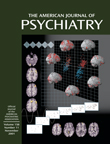This compact book is part 5 of the 18th volume of the popular annual Review of Psychiatry series edited by Drs. John Oldham and Michelle Riba. It does well as a stand-alone book because it is very specific in focus and greatly appealing in content. As the subtitle suggests, Drs. Friedman and Downey, both psychiatrists, have earmarked areas of clinical inquiry in the huge field of men’s studies. For each of these areas they found authors who write well and generally uniformly. Friedman and Downey’s purpose, noted in the foreword, is to “remind us that the practice of psychiatry is a human enterprise, a fact sometimes overlooked because of recent economic pressures on health care delivery.” How true!
Chapter 1, “Sexual Fantasy and Behavior: Selected Clinical Issues,” is written by the editors. This is a beautifully crafted chapter with lots of distilled wisdom and decipherable language and concepts. A pithy sentence from their conclusion speaks volumes: “Human sexuality tends to be neglected by modern mental health clinicians.” Friedman and Downey remind us of the importance of sexual fantasy in our patients, including common differences between men and women and the close association of erotic fantasy in men with masculine self-esteem and, at times, shame. Restricting their exposition to psychodynamic psychotherapies, they outline sexual history-taking from the initial visit to later in treatment. Particularly illuminating are their insights into how our countertransference inhibits male patients from disclosing sexual fantasies and their thoughts about how disguised sexual conflicts may contribute to disorders on both axis I and axis II. They challenge the term “sexual addiction” and define sexual impulsivity and compulsivity as more accurate representations of this behavior. The remainder of the chapter reviews such important matters as internalized homophobia, sexual symptoms (fantasy and activity) in men with severe personality disorders, and the controversial area of sexual orientation conversion.
“Male Heterosexuality” is the title of chapter 2 by Stephen Levine, M.D., who provides an exhaustive analysis. He defines male heterosexuality as “an evolving mental organization that directs the sexual and romantic interests and behaviors of males toward females for the vast majority of their life span” and describes four stages in its evolution: proto-heterosexuality (before puberty), adolescent heterosexuality, adult heterosexuality, and the final accomplishment (i.e., genuine nonsexual appreciation of the capacities, roles, and styles inherent in women’s lives). Although his biopsychosocial explanations of sexual drive, motive, and wish are very good, Levine’s discussion of psychological intimacy in men and its relationship to eroticism is brilliant. He argues that impediments to a mature capacity to love sexually can lead to psychiatric difficulties.
Stanley Althof, Ph.D., a psychologist, and Allen Seftel, M.D., a urologist, are the authors of “Evaluation and Treatment of Erectile Dysfunction.” In this age of “Viagra overkill,” it is refreshing to have a scholarly review and update of the subject. Their chapter reviews definitions, prevalence, medical risk factors, physiology, and cutting-edge gene therapy. Their model of evaluation integrates biological and psychiatric theories, as does their multidisciplinary treatment approach. Their process of care model has six phases, in which diagnostic tests, oral agents, interventional approaches, and individual and couple counseling are outlined.
“Fatherhood as a Transformation of the Self: Steps Toward a New Psychology of Men” is written by William Pollack, Ph.D., a prolific author in the field of men’s studies. He calls for a rethinking of male development and reviews much of the classic and recent work in this field. He argues that many boys and, later, men are at risk for empathic disruptions in their affiliative connections because of the “push” for autonomy in childhood and traumatic separation from their mother with no alternative nurturance provided by their fathers. He calls for a balance of the “I” (autonomy) and “We” (affiliation) in men, not an either/or dichotomy. He celebrates fatherhood and sees this as a second chance, an opportunity to repair the psychic damage secondary to a forced disidentification from early maternal love objects. Extending beyond the self, a nurturant fatherhood will be a benefit for a man’s children, his partner, and society in general.
The concluding chapter, “Casualties of Recovered Memory Therapy: The Impact of False Allegations of Incest on Accused Fathers,” by Harold Lief, M.D., and Janet Fetkewicz, M.A., addresses a current and painful subject. These authors provide an overview of the phenomenon of recovered memories and discuss the role of suggestion and their results from interviews with accused fathers from the False Memory Syndrome Foundation in Philadelphia. The impact of a false accusation cannot be underestimated—it becomes a defining feature of a man’s life. The authors share with the reader how men are affected emotionally, their typical coping mechanisms, and the implications for their work, marriages, and parenting. This study is a beginning—we can expect more scholarly work on this group of men.
All psychiatrists who treat men can learn something from this small book, whether their patients live with psychoses or V codes. The text builds on other more general works of the past decade
(1). The editors and authors are to be commended for their lucidity, richness of detail, and keen sensitivity toward men. This book is highly recommended!

